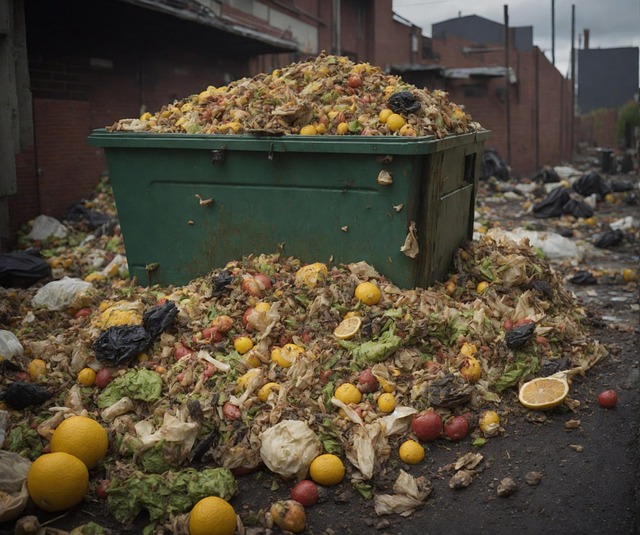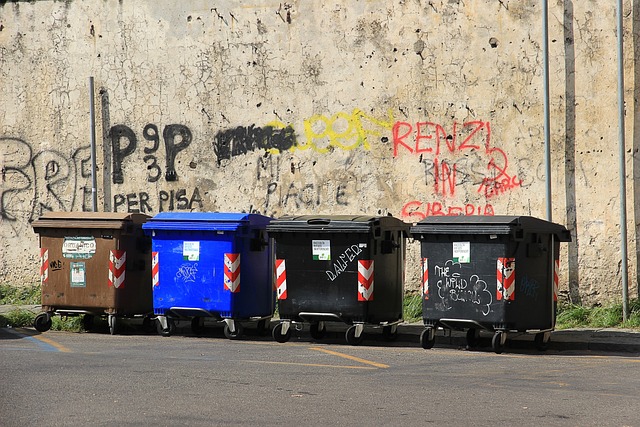Boston leads in commercial e-waste recycling, addressing sustainability needs of businesses through tailored programs. The city promotes data protection, prevents pollution, and fosters innovation by partnering with reputable recycling facilities using secure methods like degaussing and shredding. This circular economy approach recovers valuable resources from IT equipment, reducing environmental impact and lowering carbon footprints.
Data protection is a pressing concern in today’s digital age, but recycling offers a surprising solution. This article explores how commercial e-waste recycling plays a pivotal role in safeguarding sensitive information and fostering sustainability. We delve into Boston’s efforts as a leader in this space, examining the significant impact of responsible recycling practices on data security and environmental stewardship. Discover sustainable solutions that combine these critical aspects for a brighter future.
- Commercial E-Waste Recycling: Boston's Role
- The Impact of Responsible Recycling Practices
- Sustainable Solutions for Data Protection
Commercial E-Waste Recycling: Boston's Role

Boston has established itself as a leader in commercial e-waste recycling, recognizing the critical need to responsibly manage electronic waste generated by businesses across the city. With an increasing amount of old electronics and e-scrap collection services becoming integral parts of sustainable operations, Boston’s initiative focuses on minimizing environmental impact through proper disposal and recycling techniques. The city offers various programs tailored for different sectors, ensuring efficient e-scrap removal services while promoting a circular economy.
By implementing robust commercial e-waste recycling practices, Boston aims to protect its natural resources, prevent pollution, and foster innovation in the tech industry. This proactive approach not only encourages businesses to adopt eco-friendly practices but also paves the way for a greener future, where old electronics collection programs contribute significantly to a sustainable Boston.
The Impact of Responsible Recycling Practices

Responsible recycling practices have a profound impact on data protection and security. With proper e-waste management, businesses in Boston can ensure that sensitive information stored on electronic devices is securely erased or destroyed before the equipment is recycled. This is particularly crucial for commercial e-waste recycling, where electronics like computers and servers contain vast amounts of critical data. Implementing robust recycling programs involves partnering with reputable facilities that adhere to strict industry standards and regulations, guaranteeing data destruction methods such as degaussing and shredding.
By prioritizing these responsible recycling methods, Boston’s businesses contribute to the broader goal of sustainable e-scrap management for their operations. The city’s e-waste event calendar showcases numerous opportunities for local companies to participate in collective recycling efforts. Through these initiatives, not only is electronic waste minimized, but valuable resources are also recovered, promoting a circular economy and reducing the demand for new raw materials.
Sustainable Solutions for Data Protection

In the pursuit of sustainable data protection practices, commercial e-waste recycling in Boston has emerged as a leading solution. The city’s thriving IT equipment recycling hub facilitates the responsible disposal of electronic waste generated by businesses across various sectors. By implementing robust e-scrap removal services, Boston ensures that sensitive data remains secure even after the decommissioning of hardware. This approach not only minimizes environmental impact but also safeguards critical information from falling into the wrong hands.
Commercial computer disposal in MA is a strategic step towards fostering a circular economy, where valuable resources are reclaimed from discarded IT equipment. Through specialized recycling processes, components such as metals, plastics, and glass can be salvaged and repurposed, reducing the demand for virgin materials. This not only conserves natural resources but also diminishes the carbon footprint associated with manufacturing new electronics, contributing to a greener future for all.
Boston’s leading role in commercial e-waste recycling is a testament to its commitment towards sustainable data protection practices. By implementing responsible recycling methods, the city not only mitigates environmental impact but also ensures the secure disposal of sensitive information. This holistic approach, combining technological innovation and eco-conscious initiatives, positions Boston as a game changer in fostering both a vibrant technology sector and a safe digital landscape.














